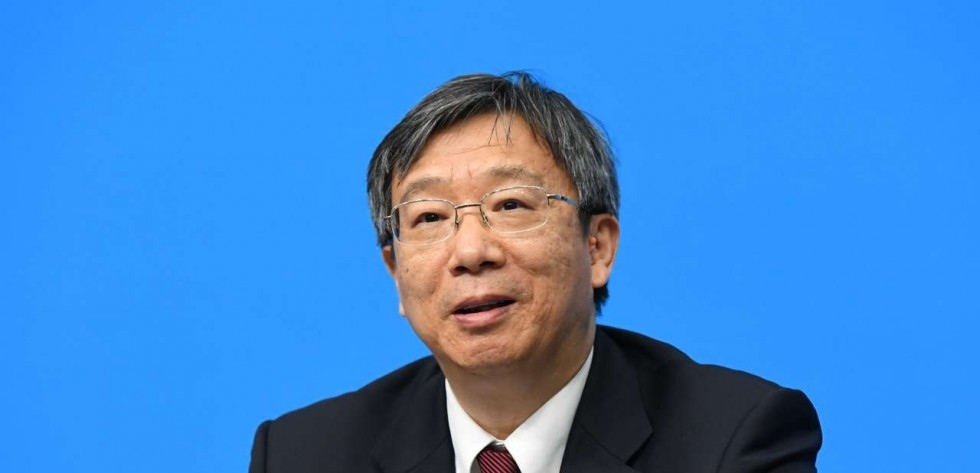China to further open financial sector
March 26, 2018 | Expert Insights

China’s new central bank chief pledged the steady opening of its financial sector. The country plans to steadily reform and further open its financial sector while putting "equal emphasis" on averting risks through regulation and supervision.
Background
The People's Bank of China is the central bank of the China, which has the power to carry out monetary policy and regulate financial institutions in mainland China. Since July 2017, the People's Bank of China is known to have the largest financial asset holdings of any central bank in the world.
Last week, China named a new leader for its central bank signaling that Beijing will continue an ambitious financial shake-up to help curb its debt and keep it under control while developing its economy. Yi Gang succeeded Zhou Xiaochuan, who held the role as the central bank’s governor for more than 15 years. The change in leadership follows a bigger plan as President Xi Jinping plans to consolidate his economic agenda. In the past few months, Beijing has been outspoken about dealing with the country’s debt problems and pushing indebted private sector companies to sell assets and pay off some of their loans.
As a result, the central bank chief is expected to play a major role ensuring the balance of credit flows to the economy. However, Yi is not likely to carry out the same policies as previously done. His appointment is seen as an important change for China as he will be transitioning the policies from a central planning method to a market-oriented one.
Over the years, the role of the People’s Bank of China has become much more technical as it has shifted away from simply mandating the interest rates that banks can charge for loans and pay for deposits. Instead, the central bank relies on open-market trading in bonds and other securities to influence interest rates, much as the Federal Reserve does in the United States.
The government has just approved a plan to combine China’s banking and insurance regulators, as a way to strengthen oversight. Due to this, the agencies will hand over some policymaking responsibilities to China’s central bank.
Analysis
In his first public speech since being appointed central bank chief, Yi Gang announced that Beijing is opening up leads to progress. Yi has an extensive academic background in monetary policy and has overseen much of the trading in recent years. He is expected to face a big challenge in managing the central bank, including shifting political priorities.
"History has proved that areas that are more open are more competitive, and areas that are less open are less competitive and see risks accumulating (as a result)," stated Yi focusing on potential risks in the financial system.
Yi is known to ensure policy continuity as China continues with its crackdown on risks and a rising debt level in its increasingly complex financial system. While Yi is not considered a political heavyweight like his former boss Zhou, he is likely to play an important role in China's new economic team. Yi emphasized on risk control and supported the government's opinion that China's opening up of the financial sector will be successful.
"We will put equal emphasis on the opening up of the financial sector and prevention of financial risks," Yi said. "The opening up of the financial sector must be accompanied by the development of financial regulation."
Recently, President Xi Jinping announced that China will strengthen economic and financial reforms and further open its markets to foreign investors. China also said it would lift the slab on foreign equity ownership in joint-venture firms. The president also stated that the sector's opening up coordinate with reforms in China's foreign exchange rate mechanism and capital account convertibility.
Yi said China will additionally open its bond market, and that the second phase of the China International Payments System (CIPS), which is a cross-border yuan settlement system, will be rolled out in the near future. The system will allow global firms to resolve payments issues with Chinese businesses more effectively.
According to Yi, "We have three major tasks for the financial system. First, implement prudent monetary policy. Second, push forward financial reforms and opening up. Third, win the battle against financial risks."
The central bank governor said he expects consumer inflation pressures to be mild this year, and that producer price increases will slow. He reiterated the central bank’s longstanding stance stating that the Chinese yuan will be kept stable.
Assessment
Our assessment is that through the central bank, China will try their best to control how the renminbi is used and valued. This will help in limiting the amount of money that Chinese citizens and both foreign and domestic companies operating in the country can send across its border. Earlier efforts to expand the economy led to a progressively rising corporate debt, thus slowing down China’s overall development. We believe that opening up the financial sector will lead to emphasizing stability and growth. China's economic performance in early 2018 has shown good momentum compared to last year, and the central bank is expected to continue to implement cautious and neutral monetary policy.








Comments